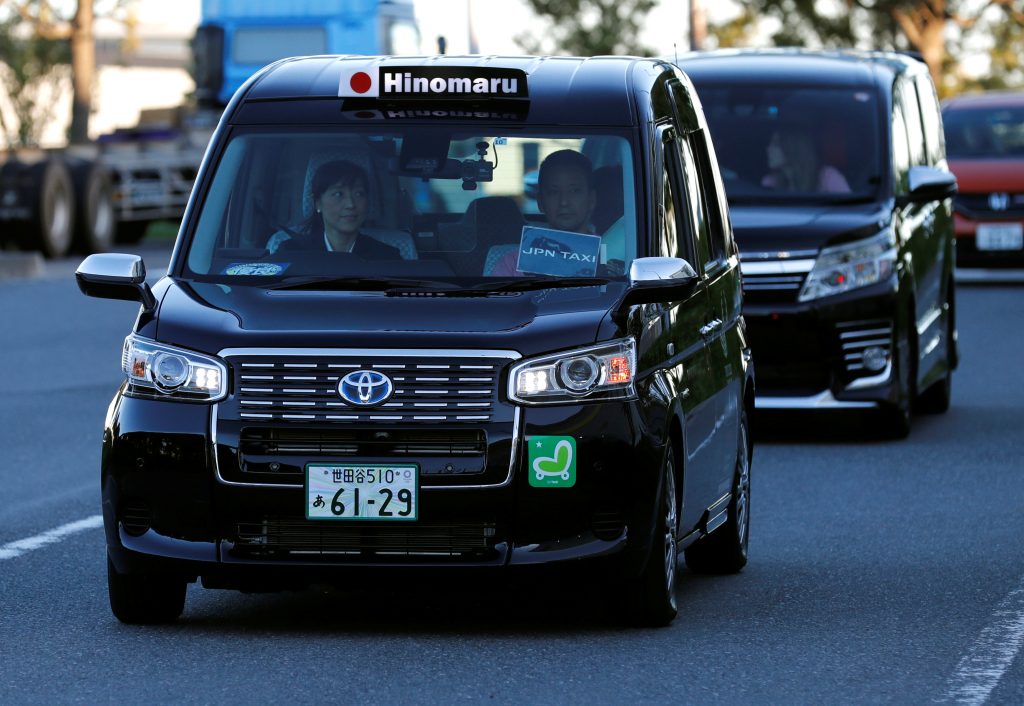The decision to introduce ridesharing services is controversial in Japan. Taxi shortages are a serious issue in rural areas. This has also become an urban problem with increasing foreign tourists resulting in long queues at taxi stands. Amid these issues, debate has arisen on the merits of continuing the partial ban on ridesharing apps such as Uber and Grab.
According to the Ministry of Land, Infrastructure, Transport and Tourism, the number of taxi drivers in 2021 decreased to 60 per cent from the peak in 2009. This is mainly due to the ageing demographic of the drivers — those aged 60 and over accounted for 64 per cent of total drivers in 2022. Successive years of mass driver retirement is an unavoidable future challenge, while young drivers have higher turnover rates as their wages are performance rather than seniority-based, unlike many other occupations.
The current situation is one of increased demand for taxi services and reduced supply, with little change to the taxi fares. Still, the 2022 increase in taxi fares in Tokyo of 19 per cent — the first rise in 15 years — had no major impact. This is mainly because of the secular decline in the population aged 15–64 by 14 per cent from the peak in 1995 to 2020. The shortage of professional drivers is more serious for trucks and buses. With strict regulations, the number of illegal taxis have increased, mainly around international airports.
Ridesharing is a new service where individuals operate their private vehicles and find work at their convenience through websites and mobile applications. The cost of supplying taxi services with a low waiting time is reduced. Ridesharing is, in principle, banned in Japan in order to protect the taxi industry. Only in local areas with no public transportation can municipal and non-profit organisations manage the car-sharing of private vehicles to save ‘migratory refugees’.
The shortage of taxi drivers is a relatively new issue in a lengthy debate on taxi regulation to prevent ‘excessive competition’. The government had previously restricted the number of taxis in particular areas based on officially projected taxi demand. These restrictions were waved in the market-based regime under former prime minister Junichiro Koizumi in 2002, bringing about a sharp increase in taxi supply. But the demand for taxis was unchanged with the fixed price by regulation, resulting in a fall in taxi drivers’ revenues.
It was a natural consequence of insufficient deregulation, but instead of removing official regulation on taxi fares, the traditional practice of regulating the number of taxis was revived.
Both taxi companies and labour unions are firmly against introducing ridesharing, insisting that it is too risky for Japanese passengers. They advocate that the deregulation of the onerous process to obtain taxi driver licenses should be a priority, such as abolishing the out-of-date test. It is a reasonable request, but not enough of an incentive to offset the number of continuously retiring drivers.
Prime Minister Fumio Kishida decided that ridesharing would be introduced in April 2024. It is on the condition that only taxi companies using the pre-existing taxi network can employ drivers without taxi licenses. This Japanese-specific ridesharing is a typical case of political compromise for regulatory reform, introducing new business by providing privileges to those opposing vested interest groups.
But taxi companies should not be empowered to monopolise ride-sharing services. Taxi companies employing drivers without taxi driver licenses will likely prioritise licensed drivers. Ridesharing drivers would only be used when all other professional drivers are occupied. This would result in unequal opportunities between drivers and customers. Professional drivers, particularly those aged 70 and above, are not necessarily safer than unlicensed drivers and account for relatively more accidents.
Taxi drivers and customers have unbiased, anonymous relationships — neither can choose the other beforehand. On the other hand, ridesharing services are often based on pre-registered membership and share biographical information, including age, gender and past evaluation records which drivers and passengers can evaluate prior to mutual selection. As the current taxi network system lacks this information, it is still considered too risky for ridesharing drivers to accept unregistered passengers.
Ridesharing drivers are to be separated among at least five existing taxi networks in Japan because no independent company can organise drivers without taxi licenses. Ridesharing services are a part of the growing share economy and facilitate trusted transactions between strangers on digital platforms.
The political battle over ridesharing is one in which the incumbent taxi companies are fighting to block the introduction of technology for supplying semi-taxi services. Resistance to technological innovation, which is badly needed in Japan, is the main problem.
There is still a possibility that the ridesharing market will be open to non-taxi companies, both domestic and foreign. The government statement said that whether non-taxi companies can start ridesharing businesses will be discussed in June 2024. But it depends entirely on the extent that the Kishida government can stand solid against political pressure from taxi companies.
Naohiro Yashiro is Professor in the Faculty of Global Business at Showa Women’s University in Tokyo, Japan.

